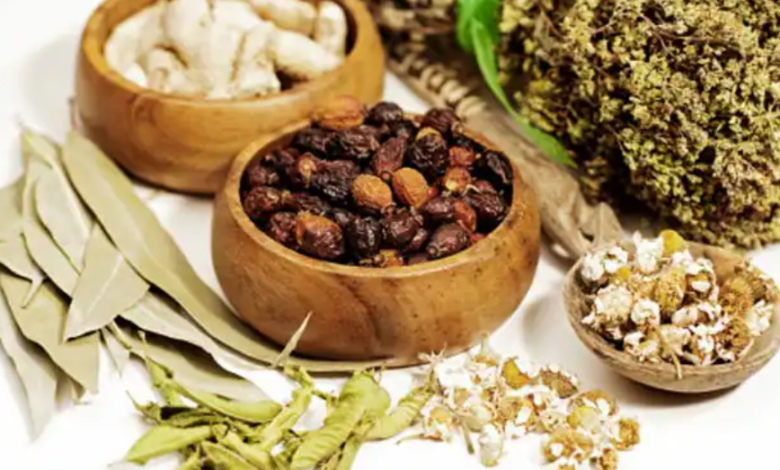Turmeric & Other Herbs That Can Boost Healthy Bacteria In Your Gut
Below we share a list of herbs that can boost your gut health.

The gut, also known as the gastrointestinal tract, is a complex system responsible for digestion, absorption of nutrients, and elimination of waste from the body. It includes organs such as the stomach, small intestine, large intestine (colon), and anus.
The gut is also home to trillions of microorganisms, including bacteria, fungi, and viruses, collectively known as the gut microbiota or gut microbiome. Gut bacteria play a crucial role in breaking down complex carbohydrates, fibres, and other nutrients that the body cannot digest on its own. They also help in the absorption of certain vitamins and minerals.
Herbs and dietary choices can greatly influence the composition and diversity of gut bacteria. Many herbs contain compounds with prebiotic or antimicrobial properties that can promote the growth of beneficial gut bacteria or inhibit the growth of harmful bacteria. Turmeric, in particular, has garnered attention for its potential benefits for gut health.
Curcumin, the active compound in turmeric, has been shown to have anti-inflammatory and antioxidant properties. Chronic inflammation in the gut can disrupt the balance of gut bacteria, leading to various health issues. By reducing inflammation, curcumin may help support a healthy gut microbiome. Read on as we share a list of other herbs that can boost gut health.
Here are 9 other herbs known for their potential to support gut health:
1. Ginger
Known for its digestive properties, ginger can soothe the digestive system and promote the growth of beneficial gut bacteria.
2. Garlic
Garlic has prebiotic properties, meaning it provides nourishment for beneficial gut bacteria. It also has antimicrobial properties that may help maintain a healthy balance of gut flora.
3. Oregano
Oregano contains compounds like carvacrol and thymol, which have antimicrobial properties that can help support a healthy gut microbiome.
4. Peppermint
Peppermint can help relieve digestive symptoms like gas, bloating, and indigestion. It may also have antimicrobial effects on certain harmful bacteria in the gut.
5. Cinnamon
Cinnamon has been shown to have antimicrobial properties and may help regulate blood sugar levels, which can indirectly support a healthy gut microbiome.
6. Fennel
Fennel seeds can aid digestion and help reduce gas and bloating. They may also have antimicrobial properties that support gut health.
7. Chamomile
Chamomile has anti-inflammatory properties and may help soothe the digestive system. It can also promote relaxation, which is beneficial for gut health.
8. Licorice root
Licorice root has been used traditionally to support digestive health. It may help reduce inflammation in the gut and support the growth of beneficial bacteria.
9. Holy basil (Tulsi)
Holy basil has antimicrobial and anti-inflammatory properties that may support a healthy gut microbiome.
To consume these herbs for optimal gut health, you can incorporate them into your diet in various ways. You can consume these herbs fresh, dried, in supplements, in teas, or as advised by your doctor. Consulting with a healthcare professional or registered dietitian can provide personalised recommendations based on individual health needs.




